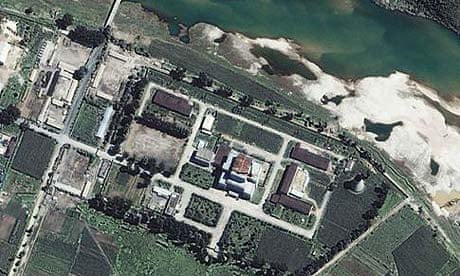North Korea has signalled its willingness to resume nuclear talks after three days of discussion between officials and the US special envoy.
In a statement following Stephen Bosworth's visit to Pyongyang, the foreign ministry said it understood the need to restart six-nation negotiations and would work with the US to resolve differences. North Korea walked out of the aid-for-disarmament discussions a year ago, saying they infringed its sovereignty and vowing never to return. It subsequently tested a nuclear device and several ballistic missiles – prompting widespread criticism and tightened sanctions.
The latest comments suggest a step forward but fall far short of a commitment to return to the table.
The state department spokesman PJ Crowley told reporters: "They have to make the fundamental decision and we did not leave the meeting today believing that they had crossed the threshold that we want to see them cross."
Bosworth said after his visit that the two sides had reached a "common understanding" on the need to restart the negotiations, while in Washington the secretary of state, Hillary Clinton, said that for a "preliminary meeting it was quite positive".
North Korea's foreign ministry said exhaustive and frank discussions had "deepened the mutual understanding, narrowed their differences and found not a few common points".
In a statement carried by the official Korean Central News Agency, it added: "Both sides agreed to continue to co-operate with each other in the future to narrow down the remaining differences."
It added that the issues discussed had included drawing up a peace treaty, improving ties, aid and denuclearisation of the Korean peninsula.
Lee Sang-hyun of the Sejong Institute, a South Korean private security thinktank, said: "North Korea will only return to the talks after the US offers it a face-saving move or substantial rewards."
Speaking to Reuters, Yang Moo-jin of the University of North Korean Studies in Seoul said: "For the situation to move forward North Korea needs to take irreversible steps in denuclearisation. For this to happen actions must be taken on both sides simultaneously."
Some analysts see North Korea's more congenial tone as evidence that sanctions are taking their toll on the country's already battered economy, while others suggest the missile and nuclear tests were always intended to push the US into direct talks.
Bosworth met the regime's foreign policy chief, Kang Sok Ju, and its chief nuclear envoy, Kim Kye Gwan. It marked the Obama administration's first high-level talks with Pyongyang.
North Korea says it needs a sizable arsenal to defend itself against attacks from the US and others, but at the same time has long sought diplomatic relations with Washington. Bosworth said he had passed on the US president's message that improved ties were dependent on progress on the disarmament deal.
In his Nobel peace prize acceptance speech, Barack Obama called for international support to ensure that Iran and North Korea forgo their nuclear ambitions. "It is also incumbent upon all of us to insist that nations like Iran and North Korea do not game the system."
Bosworth is visiting the region to brief the other members of the six-party talks – South Korea, China, Russia and Japan – before returning to Washington.
